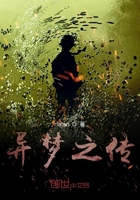AT THE TIME when this was taking place in Petersburg, the French had passed through Smolensk, and were moving closer and closer to Moscow. Napoleon’s historian, Thiers, like others of Napoleon’s historians, tries to justify his hero by maintaining that he was drawn on to the walls of Moscow against his will. He is as right as any historians who seek the explanation of historic events in the will of a man; he is as right as the Russian historians, who assert that Napoleon was lured to Moscow by the skilful strategy of the Russian generals. In this case, apart from the law of “retrospectiveness,” which makes all the past appear a preparation for the subsequent facts, the element of mutual interaction, too, comes in, confusing the whole subject. A good chess-player, who has lost a game, is genuinely convinced that his failure is due to his blunders, and he seeks the blunder at the commencement of the game, forgetting that at every move during the whole game there were similar errors, that not one piece has been played as perfectly as possible. The blunder on which he concentrates his attention attracts his notice simply because his opponent took advantage of it. How much more complex is the game of war, which must be played within certain limits of time, in which there is not one will controlling lifeless toys, in which the whole is the resultant of the innumerable collisions of diverse individual wills!
After Smolensk, Napoleon tried to force on a battle beyond Dorogobuzh, at Vyazma, and then at Tsarevo-Zaimishtche. But the Russians could not give battle, owing to innumerable combinations of circumstances, till Borodino, one hundred and twelve versts from Moscow. From Vyazma Napoleon gave instructions for an advance straight upon Moscow.
“Moscow, the Asiatic capital of this great empire, the holy city of the peoples of Alexander, Moscow, with its innumerable churches in the form of Chinese pagodas!”
This Moscow would not let Napoleon’s imagination rest. On the march from Vyazma to Tsarevo-Zaimishtche Napoleon was riding on his cream-coloured English horse, accompanied by his guards, and sentinels, and pages, and adjutants. The commander of the staff, Berthier, had dropped behind to put questions to a Russian prisoner taken by the cavalry. Accompanied by the interpreter, Lelorme d’Ideville, he galloped after Napoleon, and pulled his horse up with an amused expression.
“Well?” said Napoleon.
“A Cossack of Platov’s detachment says Platov is effecting a junction with the main army, and that Kutuzov has been appointed commander-in-chief. He is very shrewd and talkative.”
Napoleon smiled, and bade them give the Cossack a horse and bring him before him. He wished to talk to him himself. Several adjutants galloped off, and within an hour Denisov’s serf Lavrushka, whom his master had left with Rostov, rode up to Napoleon, sitting on a French cavalry saddle, wearing an orderly’s short jacket, and looking sly, tipsy, and mirthful. Napoleon bade him ride at his side and began questioning him.
“Are you a Cossack?”
“Yes; a Cossack, your honour.”














